- Learning time
- 5 minutes
- First play time
- 20 minutes
Space Planets
Designed by: Benjamin Schwer
It’s the game with the most generic name!
Space Planets is fun to play for or with kids. Nine of the planets in question (cards) are laid out as a 3 x 3 grid, with about a die’s width between them. The planets each have an explorer point value on them, and higher is better in terms of winning the game. Each player starts with four fuel crystals. On your turn, you roll a die, and try and get it to stop on one of the planets.
Having done so, you can either explore: pay the fuel cost shown on the die, and take the planet card into your stash, replacing it with another from the deck. Or, if you can’t (or don’t want to) pay the fuel, you can take the fuel costs shown on the die from the general supply into your personal supply. If your die roll misses all the planets you simply take one fuel.
That’s about it! Some of the planets have an effect; getting you fuel or costing others extra fuel for one round, and there are Black Hole cards you want to avoid as they immediately end your turn.
As soon as one player gets to five planet cards in their stash, the other players have one more turn and the game ends. Players count up their explorer points and the player with the most wins (unused fuel is also worth 1 explorer point for every two crystals)
The guru's verdict
-
Take That!
Take That!
Very little. There are a couple of cards that affect other players, but nothing to write home about.
-
Fidget Factor!
Fidget Factor!
Low. Everyone's rolling a die and making a simple choice.
-
Brain Burn!
Brain Burn!
Almost none.
-
Again Again!
Again Again!
Simple rules but a bit of variation in the cards... the main replayability in Space Planets stems from the die-rolling aspect.

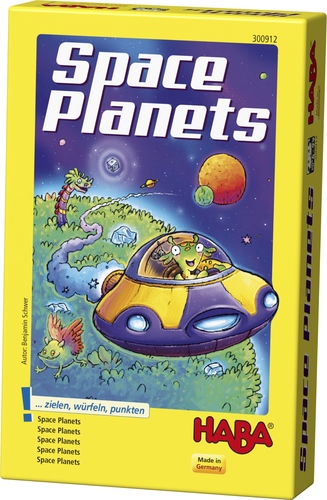

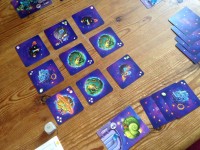
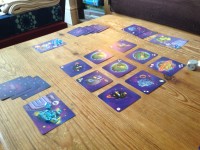
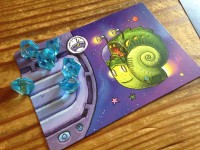


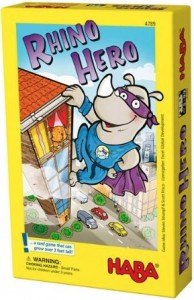
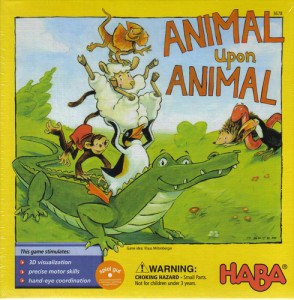
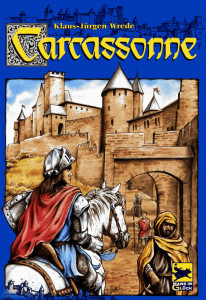
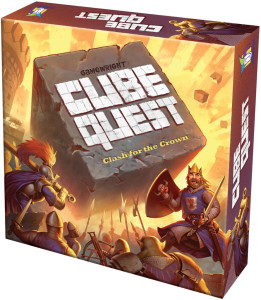
Sam says
HABA make kids games that adults can enjoy too; and while it might not roll into your top ten games ever, Space Planets is more fun than many children's games. The aim is collect five cards - simple - but the cries of joy and frustration come from the die-rolling, which is trickier than it sounds.